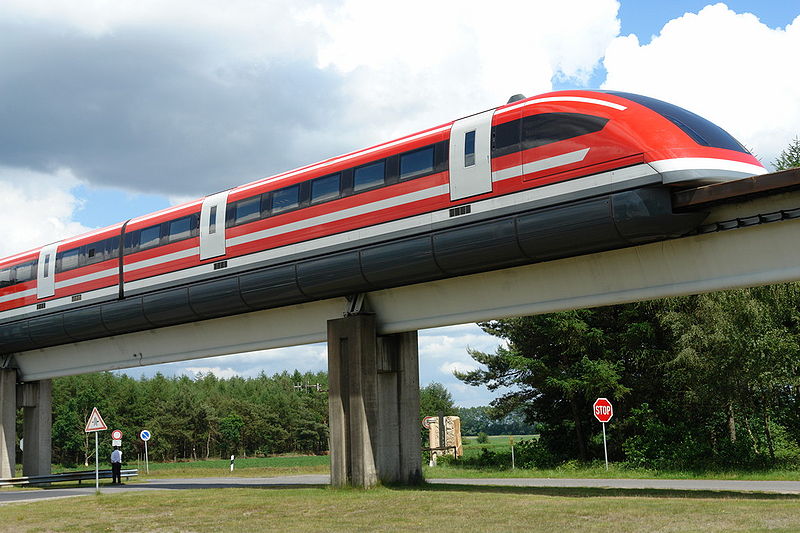Rendell’s Maglev Train Would Be An Actual Speeding Bullet
Former governor Ed Rendell is a man with a plan. Specifically, he wants to address the hellacious transportation issues Philly residents face when trying to shuttle to New York or D.C. Nobody likes the slow, congested drag that accompanies commuting to the city, but it’s a necessary evil… right? Maybe not!
Rendell’s proposed solution initially sounds more like a sci-fi plot than a viable means of getting around: a turbo-speed magnetic levitation (maglev) train that hovers above its tracks and runs at speeds up to 311 miles per hour. It initially comes across as ludicrously Space Age-y, but these trains already exist – albeit in a capacity and usage far more modest than what was put forth by Rendell.

Maglev trains, like the German one pictured, could well be the future of quick, painless transportation. Could these expensive, experimental trains be right for Philadelphia?
Without belaboring a certain, profane internet meme concerning magnets and the specifics of how they function, the science behind maglev is a bit befuddling – how do you make a train float in the air; what kind of witchcraft? It isn’t all that complicated, though. Opposite magnetic poles attract each other, and like poles repel. Maglev tracks have electrified coils that repel the huge, super-strong magnets mounted to the bottom of the train cars. That action elevates the train and moves it along. Because the train is moving with nothing beneath it, there’s no frictional drag. Consequently (and this is the cool part), these trains can move really, really fast.
The would-be maglev system in Philly would get commuters to New York in 25 minutes, and Washington in 30. To achieve the full functionality of the line as proposed would cost $100 billion and take over a decade to construct. Critics are already wondering where that money will come from, considering the Northeast Corridor can’t seem to get it together sufficiently to fund even mainstream rail service right now.
It’s a pretty big and grandiose idea, but Rendell thinks America – and, specifically, Philly – is ready for something splashy. He recently had the opportunity to ride Japan’s maglev train, and said he is completely sold. Cool doesn’t necessarily equal practical, so it remains to be seen if this futuristic fantasy ever becomes a reality.



